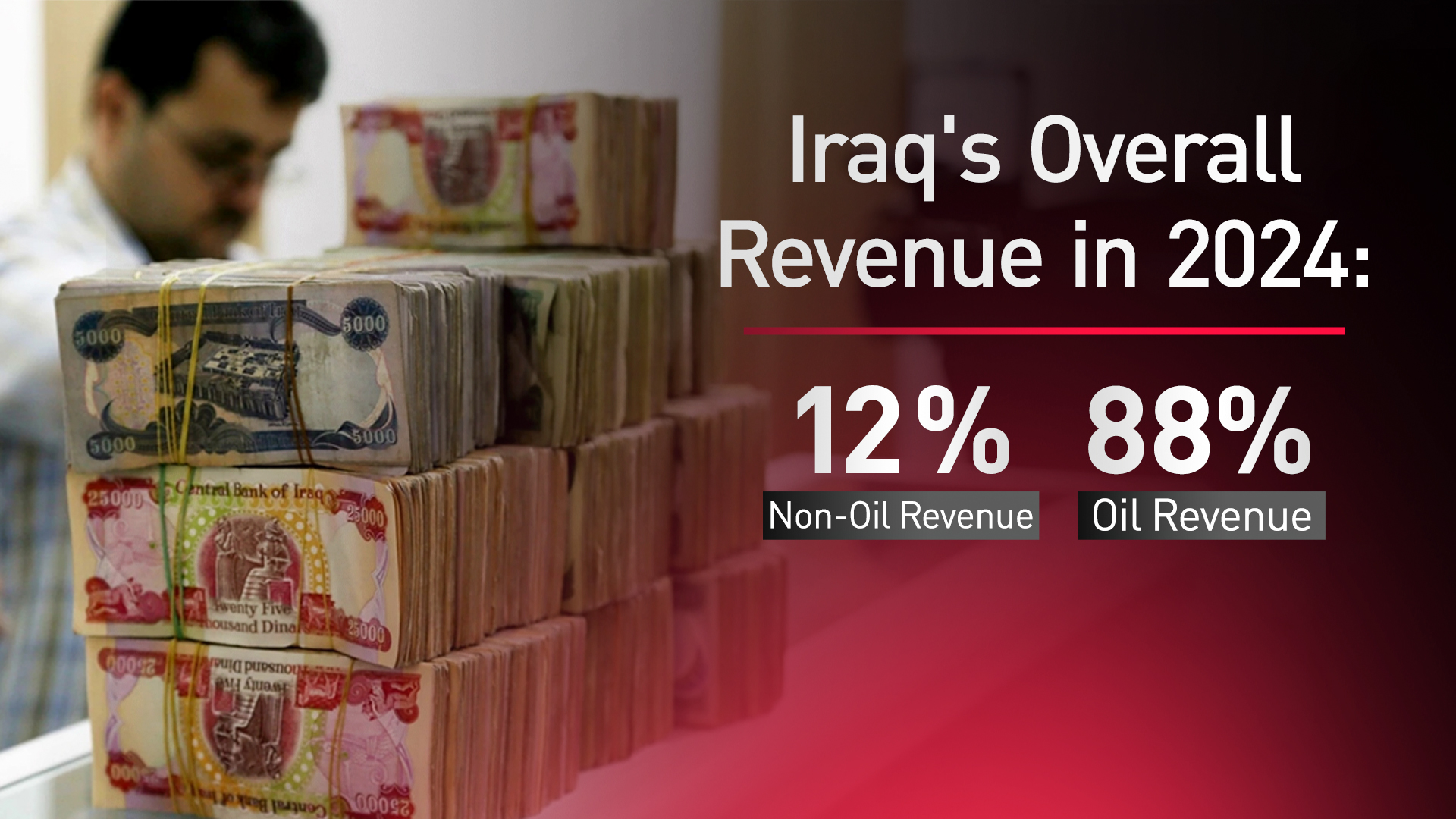Iraq’s economy still tied to oil, Iraqi Finance Ministry report reveals
Despite consecutive Iraqi governments' vows to diversify revenue sources over the past years, none have enhanced non-oil income beyond 15% of total national revenue.

Jan. 5, 2025
ERBIL (Kurdistan24)—According to a recent report from Iraq's Ministry of Finance, oil revenues account for 88% of the country's total income, while non-oil revenues make up merely 12%.
Despite consecutive Iraqi governments' vows to diversify revenue sources over the past years, none have enhanced non-oil income beyond 15% of total national revenue.
The Federal Ministry of Finance's 2024 revenue report shows that oil revenues reached 110 trillion, 220 billion, and 268 million dinars, representing 88% of the total annual revenue.
The report specifies non-oil income earnings of 14 trillion, 438 billion, and 778 million dinars, constituting only 12% of the country's total revenue.
The report states that the ministry's total expenditures over the past 10 months, comprising operational and investment expenses, amounted to 122 trillion, 720 billion, and 167 million dinars.
Of this amount, 100 trillion, 637 billion, and 260 million dinars (85%) were designated for operational expenses, while 22 trillion, 82 billion, and 901 million dinars (15%) were allocated to investment spending.
This allocation pattern is believed to be a factor in the stagnation of non-oil revenues, as a minimal budget is directed toward investment.
The total investment expenditure was distributed as follows:
- Agriculture: 167 billion and 237 million dinars
- Transportation and Communications: 2 trillion and 414 billion dinars
- Industry: 12 trillion and 720 billion dinars
- Education and Training: 993 billion and 448 million dinars
- Construction, Services, and Roads: 4 trillion, 833 billion, and 307 million dinars
A noteworthy inconsistency is apparent in the Federal Ministry of Finance's report, as investment spending was 9% over nine months but exceeded 15% over ten months, with the difference rising to 12 trillion and 517 billion in the final report.
Since the nationalization of its oil industry in 1972, Iraq has generally grappled with its profound dependency on oil revenues.
This overreliance has made the country's economy susceptible to global oil price oscillations.
Despite numerous economic reform initiatives since 2003, including efforts to reinforce the private sector and diversify the economy, Iraq continues to encounter challenges in lessening its dependency on hydrocarbon revenues.
The inadequate investment in non-oil sectors, in particular in agriculture, manufacturing, and services, has prolonged this economic structure, making meaningful diversification difficult to attain.